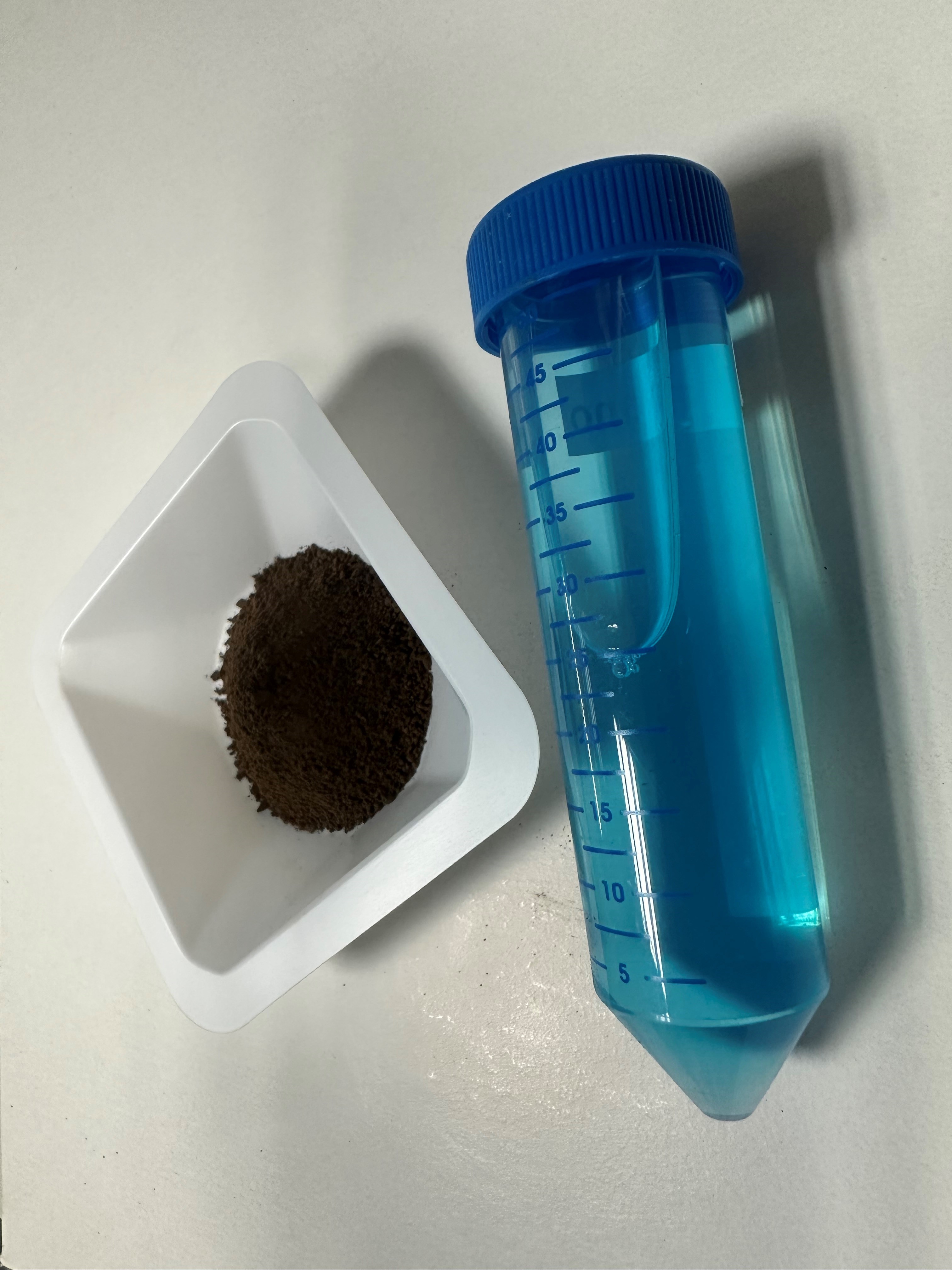Implanted medical devices coated with copper nanoparticles could reduce infection risk, study suggests
Scientists have developed copper oxide nanoparticles which can be coated onto implanted medical devices to reduce the risk of infection after operations.
By Dave Rogers | Published on 27 February 2025
Categories: Press office; Research; School of Science and Technology;

A team at Nottingham Trent University has led the work, which it is hoped will also help to tackle over-reliance on and resistance to antibiotics.
As part of the study the researchers created the nanoparticles as an antipathogenic coating suitable for use on a range of medical device materials, including silicone, stainless steel and titanium.
The research showed that both dip and spray coating techniques were effective at demonstrating antimicrobial activity and protecting against a range of clinically relevant bacteria, including multi-drug resistant strains.
The coating also remained non-toxic to human cells, the study showed.
In recent years there has been a growing interest in nanoparticle technologies and the application of antimicrobial metals, particularly silver nanomaterial research, which has applications ranging from food storage to wound dressings.
The researchers – from the university’s School of Science and Technology and Medical Technologies Innovation Facility – report that copper has emerged as a viable alternative to silver, which is susceptible to oxidation and with it a subsequent reduction in antimicrobial properties.
The increased use of antibiotics has given rise to an inevitable increase in antibiotic resistance and treatment of infections has become significantly more challenging.
In 2019 alone it was reported that 1.27 million deaths globally were directly attributable to antibiotic resistant infections.
It is estimated that if nothing is done to stem this tide of resistance that this figure could reach ten million by 2050, making antibiotic-resistant infections the single greatest cause of death globally.

Electron microscope image of copper oxide nanoparticles.
Advances in medicine mean that implanted medical devices are increasingly used to support and improve patients’ quality of life. Several million implants are placed globally each year, with the most common thought to be intravascular devices, orthopaedic implants, dental implants and cardiovascular devices.
The researchers argue that this reliance on medical materials within the body provides an ideal scaffold for microbial contamination and infection in patients, who are often vulnerable.
Ancient antimicrobials, including metals, have been used throughout history, as early as the Ancient Egyptian era, where silver and copper were used to treat burn wounds.
“It is vital that alternatives to antibiotics are explored,” said Dr Samantha McLean, Associate Professor of Infection Prevention and Control at Nottingham Trent University.
She said: “Antibiotics have been used for almost a century and revolutionised the treatment of bacterial infections, but their increased use and misuse has created enormous challenges.
“Developing antimicrobial coatings for medical devices can have a significant impact on the prevalence and severity of infections. We have found that copper oxide nanoparticles offer promising antimicrobial properties against a range of pathogens, addressing the urgent issue of antibiotic resistance.”

Copper oxide nanoparticles solid and solution.
Dr Gareth Cave, Head of the Nanoscience and Drug Delivery Group in Nottingham Trent University’s School of Science and Technology, said: “Nanoparticles offer excellent surface area to volume ratios, as well as having excellent interaction rates with bacterial cells.
He continued: “Our coating method can be applied during manufacturing, or for ad hoc modifications, enhancing the antimicrobial properties of medical devices.”
Dr Jim Hall, Research Radiographer in Magnetic Resonance Imaging at Nottingham Trent University, added: “It is important we bring together different scientific disciplines to tackle problems we all face. Bringing Physics Chemistry and Biology together lets us develop new strategies to deal with this growing issue.”
The research is published in the journal Nanomaterials.
Notes for Editors
Press enquiries please contact Dave Rogers, Public Relations Manager, on telephone +44 (0)115 848 8782, or via email.
Nottingham Trent University (NTU) has been named UK ‘University of the Year’ five times in six years, (Times Higher Education Awards 2017, The Guardian University Awards 2019, The Times and Sunday Times 2018 and 2023, Whatuni Student Choice Awards 2023) and is consistently one of the top performing modern universities in the UK.
It is the 3rd best modern university in the UK (The Times and Sunday Times Good University Guide 2023). Students have voted NTU 1st in the UK for student employability (Uni Compare 2025)
NTU is the 5th largest UK institution by student numbers, with over 40,000 students and more than 4,400 staff located across six campuses. It has an international student population of almost 7,000 and an NTU community representing over 160 countries.
NTU owns two Queen’s Anniversary Prizes for outstanding achievements in research (2015, 2021). The first recognises NTU’s research on the safety and security of global citizens. The second was awarded for research in science, engineering, arts and humanities to investigate and restore cultural objects, buildings and heritage. The Research Excellence Framework (2021) classed 83% of NTU’s research activity as either world-leading or internationally excellent.
NTU was awarded GOLD in the national 2023 Teaching Excellence Framework (TEF) assessment, as it was in 2019.
NTU is a top 10 for sport (British Universities and Colleges Sport league table 2023).
NTU is the most environmentally sustainable university in the UK and second in the world (UI Green Metric University World Rankings, 2023).